James Brett, founder of the non-profit Plant for Peace, kept the sexual abuse he suffered at the hands of his grandfather a secret for years. His life spiralled after his mother’s suicide, but through seeking support, he found self-awareness and a passion to make a real difference in the world
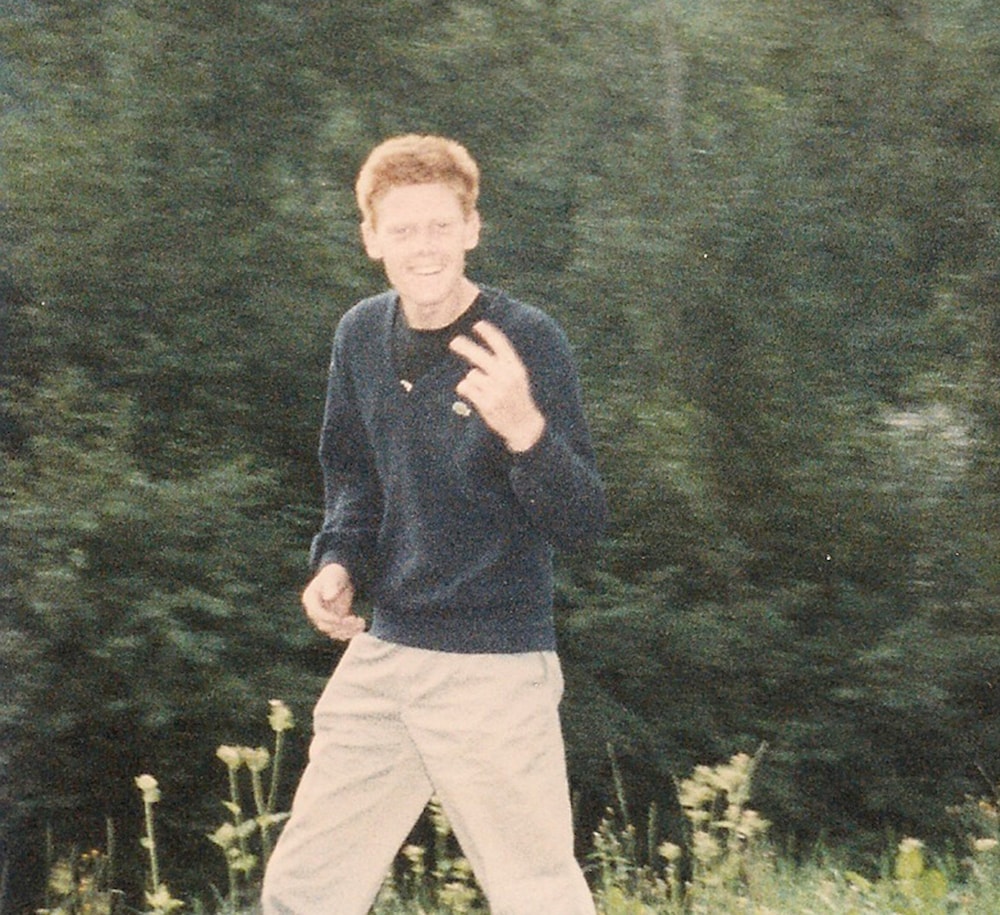
James Brett
My friends always say that the greatest achievement in my life is that I overcame my past and recovered. I agree, and for that I am truly grateful.
I measure success through contentment and not through personal wealth – and I am rich. The coffers of contentment overflow within me, so much so that I would not change anything that happened to me in my past, for it has made me who I’ve become. Life is good. But it was a long, painful journey to get here.
As a child, my paternal grandfather, who was the head of our local gospel hall, sexually abused me for four years. I was nine years old when the abuse started. Born into a religious family, I’m the second eldest son of five children. My father worked for Nationwide Building Society, and my mother was a foster parent who won Super Mum of Wiltshire in 1985. In 1986, at the age of 16, I told my parents about the sexual abuse. My mother decided to stop fostering the next day. She said she couldn’t continue fostering other people’s children when she hadn’t even managed to protect her own. She became very withdrawn, and in early 1987, she drove into Swindon town centre and jumped off a multi-storey carpark, taking her own life.
I left Swindon police station at 17 years old, broken from my pain and angry at the injustice
The church elders accused me of being gay and leading my grandfather on. The police nigh on forced me not to press charges, even though my grandfather admitted the abuse. I left Swindon police station at 17 years old, broken from my pain and angry at the injustice. I had been let down on all fronts and felt alone. Young, traumatised and angry, with no adult guidance from that day on, and blaming myself for my mother’s death for the next 20 years, I was a recipe for one thing: dysfunctionality. In my mind, society owed me for letting me down – and society was going to pay.
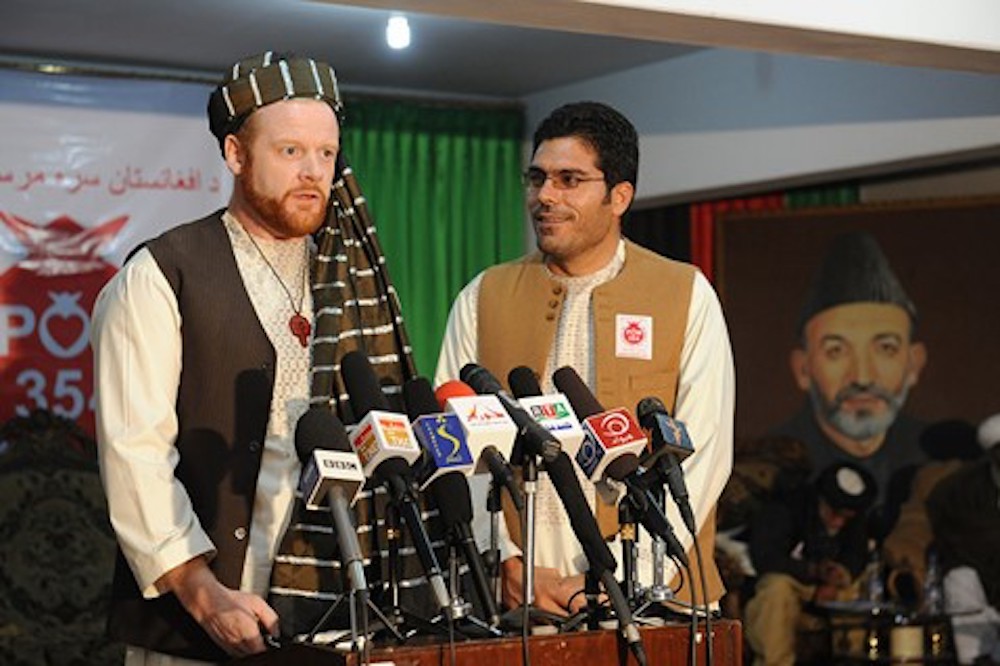
James Brett
For two years, I travelled around Europe by train, shoplifting designer clothes and anything else of value that I could sell back in the UK. To cope, I smoked 20 joints of hash every day, and built a strong reputation within the criminal fraternity. After being arrested, I would intimidate the police and put on performances in court that were Oscar-worthy, as I humoured the court proceedings. I found it farcical to be in court for these offences when the police had let my grandfather off for the abuse.
But what could they do to me? They knew I was a lost cause, was on the mental health register, and on both psychiatric and street drugs. At 6ft 2in, with a ginger beard the size of uncle Albert’s from Only Fools and Horses, and eyes that looked withdrawn and dangerous, I had an air of unpredictability that made people uneasy, and an anger bubbling away that got me through the day.
People who knew me then knew I had a good heart, but that I was hurting. Those who didn’t know me were wary and avoided me. I was unapproachable; the epitome of a lost and broken soul, yet with a morality that my mother had instilled in me.
At the age of 20, I arranged for a friend to smuggle 10 kilos of hash to the UK from Amsterdam to help sustain my habit. He got caught and went to prison. Wanting to put the matter right, a week later I told the police that I had arranged the smuggling and was put in the same prison – Rochester Young Offenders Institute in Kent.
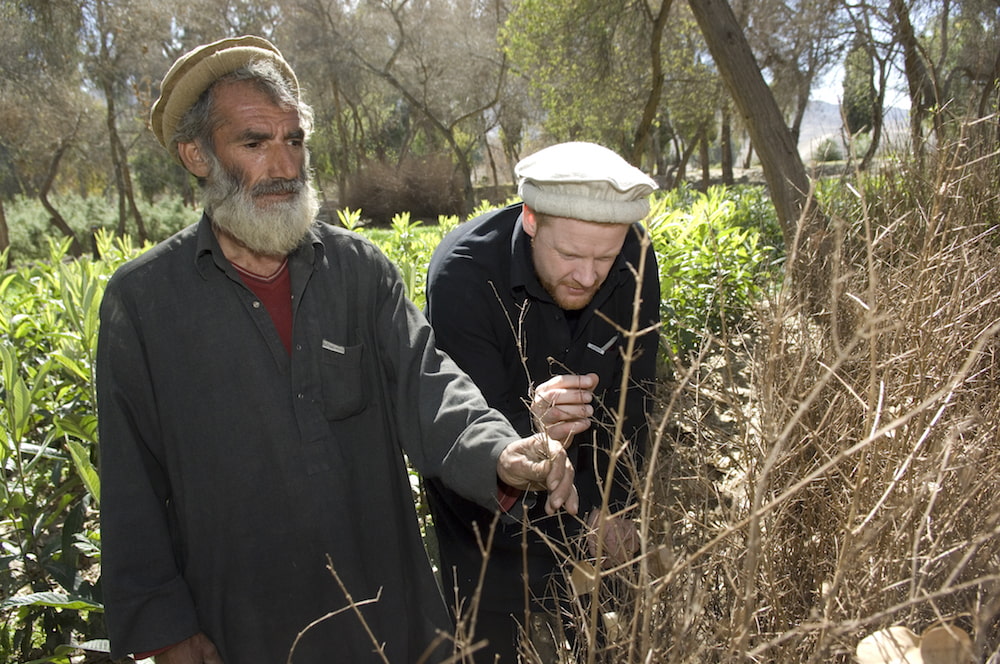
James Brett
On leaving prison at 21, I pinched a book from the library on British woodland and medicinal plants, and began living in a forest.
I couldn’t cope with society and wanted to opt out of being a part of it. Nature gave me solitude and helped me escape the madness of humanity. It also gave me a sense of spirituality, and intermingled with the thoughts of my own insanity came thoughts of really doing good in the world to try to make a difference.
In 1999, I was travelling in northern Pakistan and saw an old man blending pomegranate juice on the street. A strong sensation came over me. I returned to UK and founded Pomegreat – the UK’s first pomegranate drink.
In 2004 I had a breakdown as my past finally caught up with me
I was still very troubled, and in 2004 I had a breakdown as my past finally caught up with me. I was sectioned under the Mental Health Act and put in a psychiatric hospital in Scotland on and off for 18 months. Besides switching your brain off and creating long periods of void within one’s thought processes, another side effect of the psychiatric medication was weight gain, and I ballooned to 135kgs [about 21 stone].
Still on psychiatric medication, in mid 2005 I was released from hospital as an outpatient, and shortly afterwards a friend introduced me to a counsellor in Swindon who helped adults address their issues of childhood sexual abuse. I was living in Scotland, 35 years old and was in despair at the thought of having to live another 35 years trying to cope with myself.
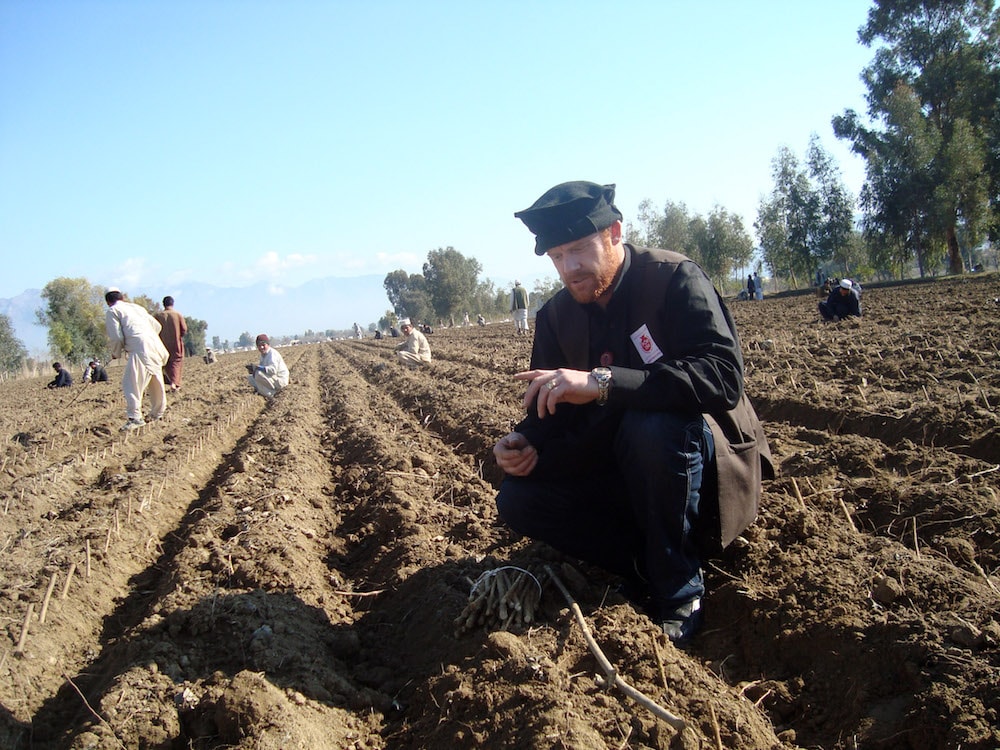
James Brett
The thought was unbearable and I had to do something about it. I ended up driving the 700-mile round trip from Scotland to Swindon every Monday for 18 months to go to counselling, and I became really well, learning the lessons of recovery – self-awareness, appreciation and gratitude. After 20 years of trauma and dysfunctionality, self-awareness consumed me for the first time and made me reflect on my actions over the years – and who I really was. They were the hardest 18 months of my life and I wept inconsolably every day.
In 2006, the head consultant psychiatrist from Ailsa hospital in Ayrshire, Scotland, took me off the mental health register for the first time since my mum had died. I had been on it for 20 years.
Self-awareness made me realise that my wife was unhappy, and that I’d kept her hostage in our relationship – I was co-dependant. It was February 2007, after appearing on This Morning’s National Sexual Abuse Awareness Week, that I drove back to Scotland knowing I had to set my wife free.
I knew my recovery meant nothing if I didn’t give my wife the opportunity to have a happy life. I cried nearly all the way home, knowing I was going to break up our family. When I arrived home, after over seven years of marriage, I told my wife that if she wanted to leave me I would support her. With a huge sigh of relief, she thanked me, gave me a hug, and we agreed to get a divorce. She is now happy in another relationship, and I am really happy for her.
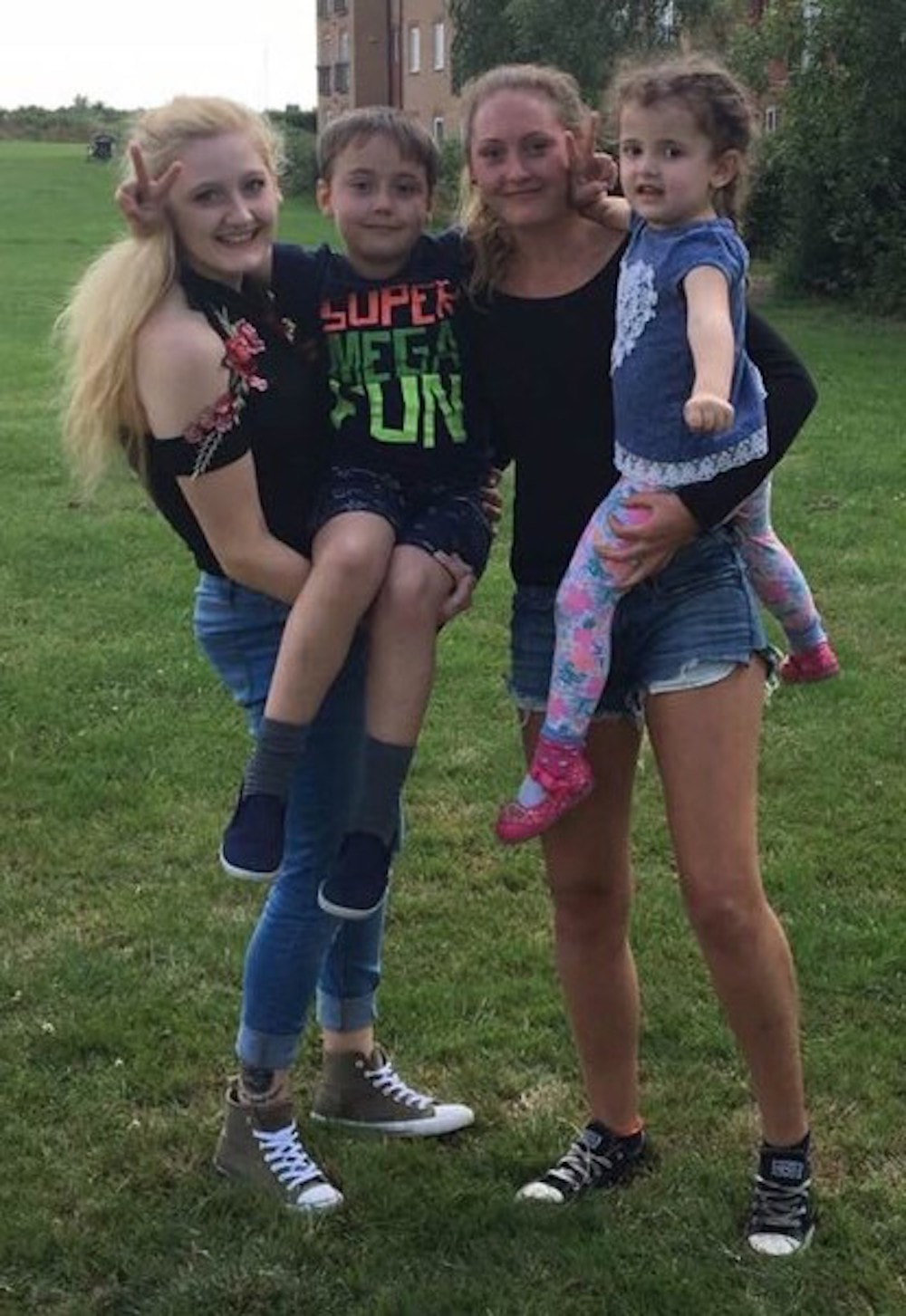
James' wonderful children
In April 2007, I was invited to Afghanistan to talk to farmers about growing pomegranates and other fruits. Opium for the heroin industry was growing everywhere. My life seemed to flash before me. I had to help these people living in mud houses, with no electricity, water or sanitation and no education. They were a nation persecuted by 35 years of war. The harshness of their existence resonated within me; they were victims of their own circumstances, ostracising themselves through growing opium. How could the world’s largest narco-state ever be accepted by the rest of the world?
While there, I ran into a field of opium farmers and convinced one farmer to grow pomegranates. The knock-on effect of this brief and dangerous encounter was that I held seven large gatherings in Afghanistan – the largest with 14,000 people, and we destroyed 13 tonnes of drugs. Life has never been the same since.
Ten years ago, I founded a peace-making initiative called Plant for Peace. We work with smallholder farmers in Afghanistan, purchasing their produce to create fruit bars, which we sell in Sainsbury’s and Waitrose. For every bar sold, we plant a tree in Afghanistan. Plant for Peace enables farming communities traumatised by conflict, just like the personal conflict I suffered, to recover and become functional – just like I did.
Plant for Peace has been invited to another nine countries in conflict, and I hope that we can create global demand for millions of smallholder farmers’ produce, creating the largest global social-impact, carbon-offset, peace-making supply chain network in the world.
Driven by my mother, who was so passionate, determined and motivated, Plant for Peace continues to blossom and grow, as I and the smallholder farmers do as well. Peace is a beautiful destiny, and today I travel around the world telling my life story to gain support for Plant for Peace and share my journey of recovery at prisons, psychiatric hospitals, and schools.

Today, I have a great life, married to a beautiful Armenian wife and am father to four children. I’ve travelled to more than 80 countries, and have been gifted with amazing direction and purpose. I know a variety of people all over the world, from royal families to heroin addicts, presidents to prison inmates, diplomats to mental health patients, celebrities to slum dwellers, people who are whole and others who are empty.
My life is amazing and I am fortunate enough to realise that what I have been through has made me who I have become, and that I can help change the lives of millions of people around the world. For this I am truly grateful, and the memory of my mother lives on.

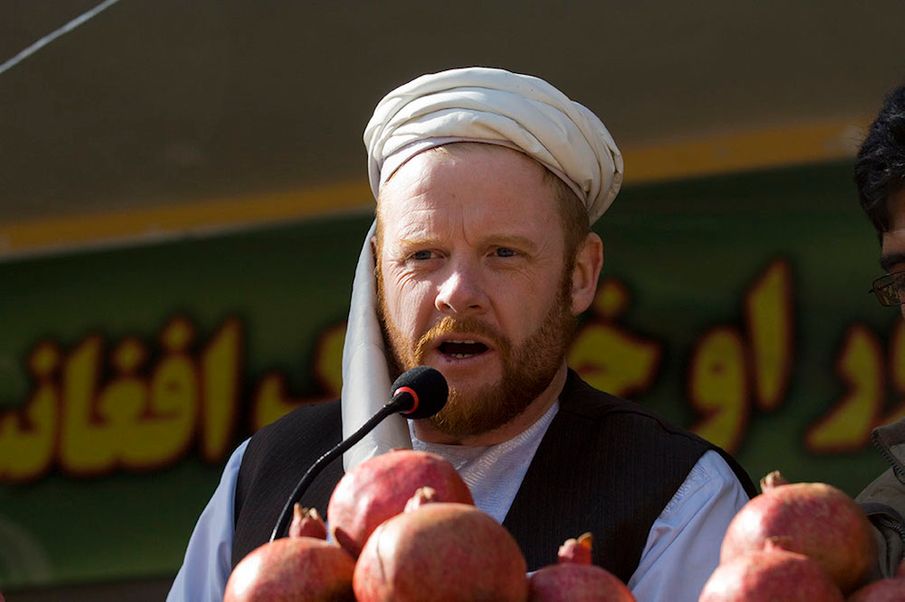
Comments